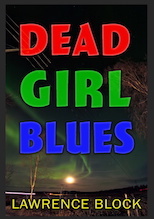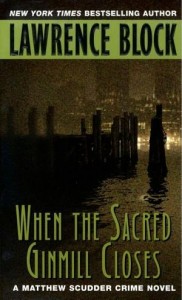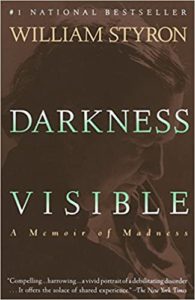 “A man walks into a bar, he picks up a woman, then he rapes and murders her — but not necessarily in that sequence.
“A man walks into a bar, he picks up a woman, then he rapes and murders her — but not necessarily in that sequence.
“‘Rape and murder, while frequent companions, don’t always take place in that order. Which is to say I was neither the first nor the last man to kill a girl first and [violate] her afterward.
“‘I’d blundered into a crime, blundered through it, and blundered out of it, with nothing beyond dumb luck guiding my footsteps… How many of us can cross a forbidden line once and never step over it again?’
“This novel is steeped in the traditions of noir, but it is not a traditional crime novel. It is not primarily about the commission of the crime. It is not about the police hunting for the killer. It is not even, strictly speaking, about the aftermath of the whole event.
“It is the story of what the man does with the rest of his life, over the next fifty years. How does he go on after an act like that? Does he wallow in guilt? Does he forgive himself? What rituals does he develop to subvert and sublimate his strange sexual urges? Does he find a path to contribute positively to his family and society? Does he kill again? Does he get caught?
“Let me say upfront: If this book does not win an Edgar Award, then they should stop giving the darn things out.
“I’ll even go one step further: This novel deserves consideration for a Pulitzer Prize.
“In a very unique way, using the tropes of a long-established genre, this nuanced character-driven drama examines an overlooked aspect of the universal human condition, that single facet of our sin-filled nature responsible for many of history’s atrocities–from human sacrifice to slavery and the Holocaust, even the killing of George Floyd at the hands of four white cops. It is a frank exploration of the human mind’s ability to rationalize, justify, minimize, and ultimately accept any behavior, no matter how abhorrent.
“It is a book that also celebrates the bond of families, the power of confession and forgiveness–even when that forgiveness is only imagined or proffered by individuals who have no right to do so and may be acting out of selfishness.
“At one point, while the man contemplates an act of atrocity even greater than his first crime, he reflects, ‘I’ve learned that it’s prudent for me to do what this quasi-conscience prompts me to do. It’s in my interest, and I’m able to act in my own interest and override contrary impulses. In fact I’ve done so for long enough that I’m barely aware of those impulses…. I’ve given a good performance. I’ve even managed at times to convince myself.’
 “Where does this book rank in the Lawrence Block oeuvre, which now stands at 209 books? I think it sits at the very top, alongside When the Sacred Ginmill Closes. It has been years since I was so absorbed by a single character that I (literally) could not put the book down until I finished it in the wee hours of the morning.
“Where does this book rank in the Lawrence Block oeuvre, which now stands at 209 books? I think it sits at the very top, alongside When the Sacred Ginmill Closes. It has been years since I was so absorbed by a single character that I (literally) could not put the book down until I finished it in the wee hours of the morning.
“This feels like the culmination of several ideas, characters and stories that Lawrence Block has been working towards for decades. I feel the progenitor of this narrator was a character from a much older book, A Stab in the Dark (1981). The structure owes a lot to Resume Speed (2016) and perhaps also Donald Westlake’s Memory.”
 “not a prude but it’s a disgusting book from a one great writer”
“not a prude but it’s a disgusting book from a one great writer”
 “A man walks into a bar, he picks up a woman, then he rapes and murders her — but not necessarily in that sequence.
“A man walks into a bar, he picks up a woman, then he rapes and murders her — but not necessarily in that sequence. “Where does this book rank in the Lawrence Block oeuvre, which now stands at 209 books? I think it sits at the very top, alongside
“Where does this book rank in the Lawrence Block oeuvre, which now stands at 209 books? I think it sits at the very top, alongside
I haven’t posted this on Amazon because I am still processing your book. However, I am of two minds on the content and substance. On the one hand, the writing is, or course, excellent. Your voice is more prominent, however, no 3rd person here. It sounds just like your newsletters, and perhaps that’s what makes me uncomfortable. I am trying to figure out why I like Keller so much, but Buddy aka Mr. Thompson not so much. I tried to imagine an ending, but failed. Is he sincere? Will he descend again to the pits? Does he get caught? And is he family really, truly that naive and devoted? I give you kudos for the honesty with which you write, but I cannot give five stars.
Looks like F. Dostoevski took time out from his busy day to review your new book, Larry. I am looking forward to reading it. If I were to buy up a number of hardbound copies could I impose on you to sign some plates for me, as you did in olden days? Hope you and your companion are well. Herb Slojewski, Glendale, CA.
it sounds good to me.
From the creator of the dreariest book ever written – Sophie’s Choice.
Opinions are like….well, you know the rest.
As author William Styron died in 2006, I don’t think we can really blame him for this review (or credit him with it, as you prefer).
Since writer Styron died in 2006, you’re not being taken to task by him. Your novel is unflinching and far from comforting, but it does not seem untrue to the character or his situation. As far as I know you have nothing to be ashamed of. Guilt affects Scudder, though not Bernie or Keller — conscience of a sort DOES come to this protagonist; indeed, he seems driven to understand if he has that capacity. It is not a pretty story, as you know, but it can be taken for something like life.